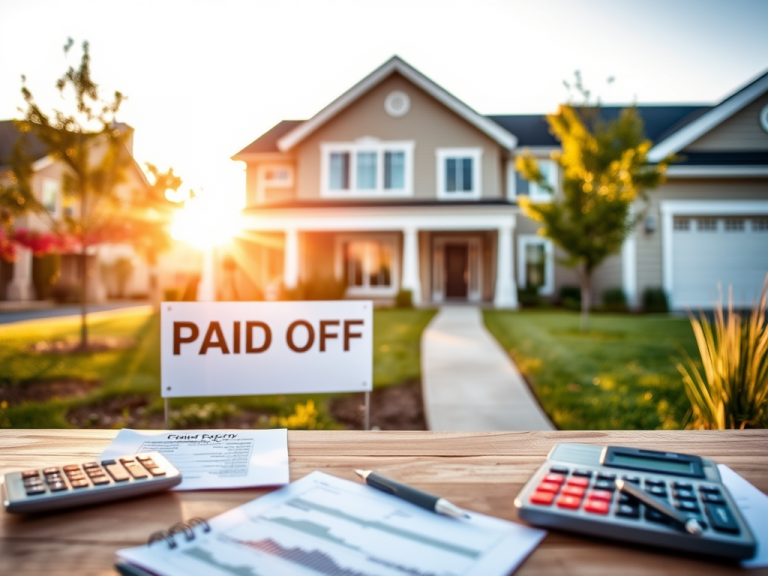Owning a home is a major milestone, but paying off your mortgage early can be a powerful strategy to fast-track your journey to financial independence and retire early (FIRE). By reducing your mortgage timeline, you can save thousands in interest payments and gain greater financial flexibility. However, knowing the best methods — and when early repayment is the right choice — is crucial to maximizing your financial gains.
In this guide, we’ll explore five effective ways to pay off your mortgage ahead of schedule while ensuring each strategy aligns with FIRE principles. We’ll also discuss key considerations, potential pitfalls, and best practices for achieving this goal without compromising your broader financial security.
Background A mortgage is one of the largest debts most people will take on, often spanning 15 to 30 years. While adhering to your original loan schedule is common, accelerating your payoff timeline can provide considerable financial benefits.
For those pursuing financial independence, reducing debt obligations is pivotal. Eliminating mortgage payments sooner can lower your monthly expenses, expand your cash flow, and free resources for investments — key elements in achieving the FIRE lifestyle.
Key Concepts Before jumping into strategies, understanding these key concepts will enhance your mortgage payoff approach:
- Principal: The original loan amount borrowed, excluding interest.
- Interest Rate: The percentage charged on your loan balance.
- Amortization Schedule: The structured timeline dictating how much of each payment goes toward interest versus principal.
- Equity: The portion of your home’s value you own outright, which grows as you pay down your mortgage.
Detailed Explanation
1. Refinancing Your Mortgage for a Shorter Term
Refinancing involves replacing your existing mortgage with a new loan. By switching to a shorter loan term — such as from 30 years to 15 years — you can reduce your total interest payments and pay off your mortgage faster.
Steps to Refinancing for Early Payoff:
- Review your credit score, debt-to-income ratio, and current mortgage terms.
- Shop around for competitive rates from lenders with minimal fees.
- Use an online mortgage calculator to determine your break-even point (when savings outweigh refinancing costs).
- Consider lenders like Ally Bank or Better.com that offer low or no lender fees to reduce costs.
2. Increasing Your Monthly Mortgage Payment
One of the simplest and most effective ways to pay off your mortgage faster is by adding extra funds to your monthly payment. By consistently overpaying, more of your payment applies directly to the principal, reducing your loan balance faster.
Best Practices for Extra Payments:
- Confirm with your lender that the extra payment is applied directly to your principal.
- Even an additional $100 to $200 monthly can shave years off your mortgage term.
- Automate the extra payment for consistency and financial discipline.
3. Switching to a Biweekly Payment Schedule
Instead of making 12 monthly payments per year, biweekly payments divide your total annual payments into 26 half-payments. This effectively results in 13 full mortgage payments annually, reducing your balance faster.
Steps to Implement Biweekly Payments:
- Confirm that your lender allows biweekly payments without additional fees.
- Set reminders or automate your payments to ensure they align with your pay schedule.
- The additional payment may seem small, but this method can shave off several years from your mortgage.
4. Making Lump-Sum Principal Payments
Windfalls such as work bonuses, tax refunds, or inheritances offer an ideal opportunity to accelerate mortgage repayment without impacting your monthly budget.
Strategies for One-Off Payments:
- Create a plan to allocate a set percentage of every windfall toward your mortgage.
- Prioritize principal reduction to maximize the interest savings effect.
5. Recasting Your Mortgage
Mortgage recasting involves making a substantial one-time principal payment, after which your lender recalculates your monthly payment based on the reduced balance. Unlike refinancing, this method doesn’t require a new loan application or closing costs.
Steps for Mortgage Recasting:
- Check with your lender to confirm eligibility for recasting.
- Determine the required lump-sum payment (typically $10,000 or more).
- Request a recasting quote and confirm new monthly payments before proceeding.
Tips
- Prioritize High-Interest Debt First: While paying off your mortgage early can be advantageous, prioritize higher-interest debt (like credit cards) before committing extra funds to your home loan.
- Build an Emergency Fund: Maintain 3 to 6 months’ worth of expenses in a liquid savings account before allocating extra funds to mortgage repayment.
- Maintain Investment Contributions: Balance extra mortgage payments with continued contributions to retirement and investment accounts to maximize growth opportunities.
Case Studies or Examples Case Study: Sarah and Mark’s FIRE Mortgage Payoff Plan Sarah and Mark, a couple in their 30s pursuing financial independence, strategically combined multiple strategies to pay off their 30-year mortgage in just 12 years. They refinanced to a 15-year term with a lower interest rate, switched to biweekly payments, and applied 50% of Sarah’s annual bonuses toward the principal. By maintaining an emergency fund and consistently investing in index funds, they achieved their mortgage-free goal without compromising their retirement savings.
FAQ Q: Does paying off my mortgage early hurt my credit score? A: It may have a minor short-term impact since closing an active credit account can reduce your score. However, the long-term benefits of improved cash flow and reduced debt outweigh this temporary dip.
Q: Should I pay off my mortgage early or invest those funds instead? A: Evaluate your mortgage rate against potential investment returns. If your mortgage rate is low and investments yield higher returns, investing may be more advantageous.
Q: Can I still claim the mortgage interest deduction if I pay off my mortgage early? A: No, this deduction only applies while you’re actively paying mortgage interest. However, the savings from reduced interest payments typically outweigh the tax deduction.
Conclusion Paying off your mortgage early is a powerful step toward financial independence, especially when aligned with FIRE principles. By strategically combining refinancing, increased payments, biweekly schedules, lump-sum contributions, and recasting, you can accelerate your path to mortgage freedom while maintaining financial stability. Carefully assess your financial situation, prioritize other debts, and consult with financial experts to ensure early mortgage repayment aligns with your long-term goals.


